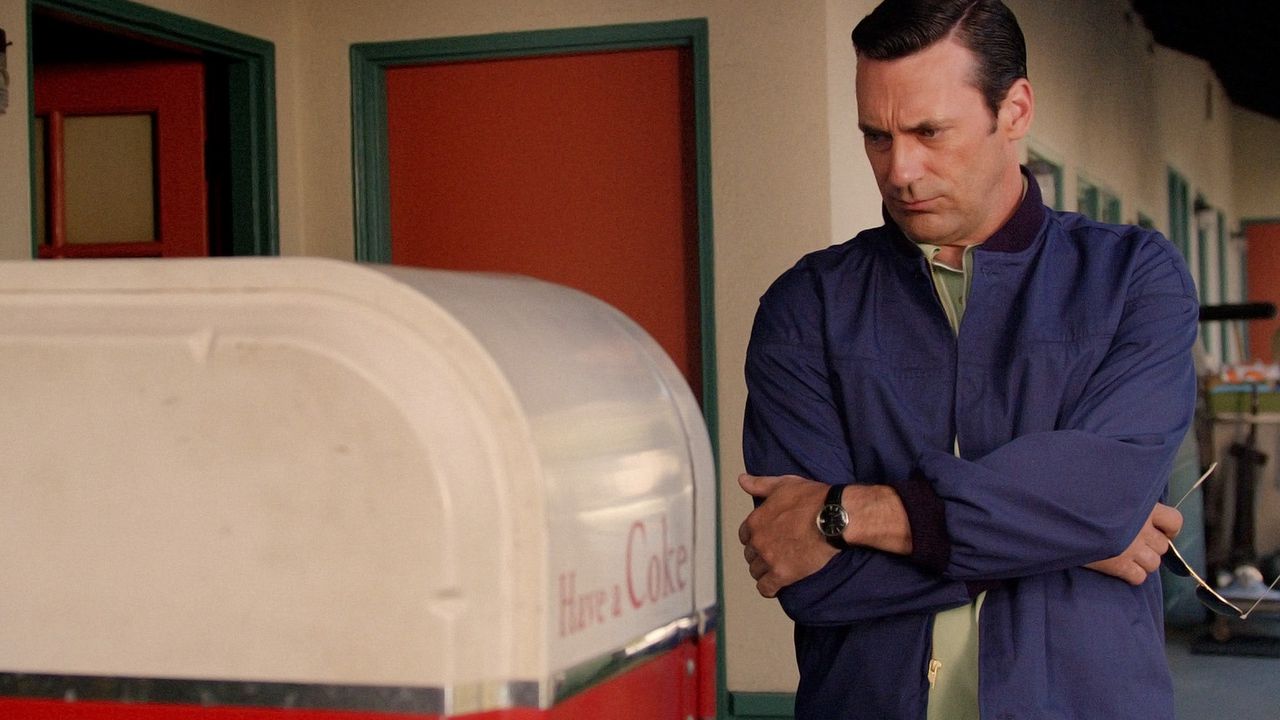In the immediate aftermath of watching "Person to Person," I
wanted to think that the ad was simply there to underline the
genuineness of Don's moment of bliss by showing us what a phony version —
produced by the agency and business he traveled thousands of miles to
escape — looked like.
And that was mainly because I didn't want the entire
series, and in particular Don's cross-country odyssey of self-discovery —
during which he gradually shed himself of all the trappings of the life
he built by stealing the real Don Draper's identity — to build to him
learning nothing besides how to write a better tagline.
Even if that ultimately feels true to both him and the series.
We forge attachments with the characters of our favorite
shows. We spend years watching their stories, and we want that time to
feel well-spent. Sometimes, that means accepting them for who and what
they are — embracing the monstrosity of a Tony Soprano or a Walter
White, or accepting the deeply flawed natures of everyone and everything
on "The Wire" — and appreciating how artfully their stories are told.
Sometimes, though, we want to believe the best of them: that despite
abundant evidence to the contrary, they can transcend their weaknesses
and destructive patterns and become worthy of the time we put into them
not just as a complex and interesting character on a TV show, but as
someone worthy of this theoretical, entirely one-sided relationship
we've built with them.
The Don Draper we spent 92 hours watching was frequently a
terrible human being. He stole a dead man's identity, drove his own
brother to suicide, repeatedly cheated on both his wives, abandoned all
responsibility to work and/or family whenever the mood struck him, and
walked all over Peggy like she was a wine-stained scrap of carpet. But
the Don we watched also had his moments of trying to be better, and
occasionally achieving that goal for a moment or two before backsliding
into his bad habits. The Don who showed Peggy the new Samsonite idea at
the end of "The Suitcase," or the one who told Sally the truth about his
upbringing, or even the one who wished his Birdie luck at school a few
weeks ago — that is the Don Draper, or the Dick Whitman, or the blend of
the two, whom we wanted him to be. And his final hobo odyssey —
particularly that wry grin on his face as he sat on the bus bench at the
end of last week's episode, completely free of the burden of being Don
Draper, master of the universe — seemed to be pointing him in that
direction.
If Don really traversed this great land of ours, threw away
all the sigils of Don Draper-hood, learned of Betty's impending death
and the shaky future of their three children, and finally heard someone
articulate his own deepest feelings of unlovability, and he came out the
other side having only acquired the inspiration needed to buy his way
back into McCann(**) and write that Coke ad — and cutting straight from
the look of pure bliss on Don's face to the ad, without giving us hints
of anything else he might do upon returning to New York, suggests that
this is the only thing that ultimately matters to him — then that is a
very cynical and dark take on a man I wanted better from.
But it also seems like an honest take on who that man actually was, and what "Mad Men" has been about.
(Alan Sepinwall)






























